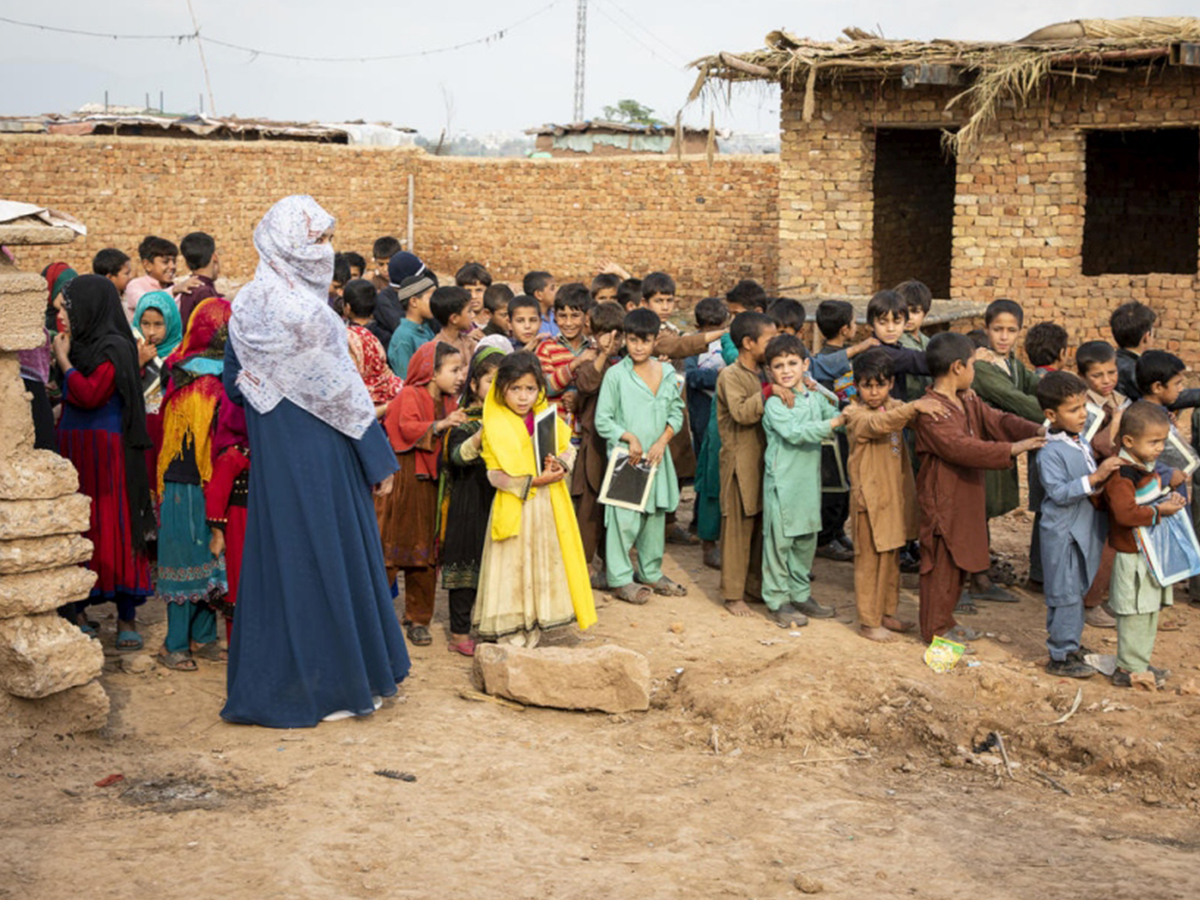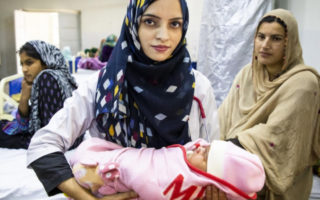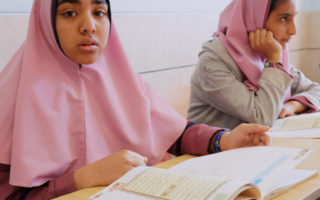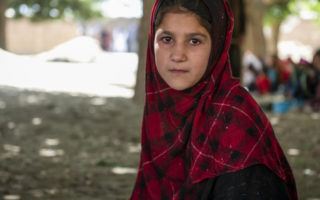
Afghan refugee children at a makeshift school in Sector I-12 settlement, Islamabad, Pakistan. © UNHCR/Roger Arnold
This is a summary of what was said by UNHCR spokesperson Babar Baloch – to whom quoted text may be attributed – at today’s press briefing at the Palais des Nations in Geneva.
UNHCR, the UN Refugee Agency, is appealing for intensified support for displaced Afghans and their hosting communities, ahead of the first-ever Global Refugee Forum in Geneva, next week.
As we enter the fifth decade of Afghan displacement, some 4.6 million Afghans remain uprooted globally – including some 2.7 million registered as refugees, and another two million displaced inside Afghanistan. Afghans represent the longest displaced and the longest dispossessed population under UNHCR’s mandate worldwide.
An overwhelming majority of some 90% Afghan refugees remain in the Islamic Republics of Pakistan and Iran. Afghans are also the single largest group of asylum-seekers arriving in Europe, due to a sharp deterioration in security in Afghanistan, and increasing financial pressure on hosting nations.
In both Iran and Pakistan, Afghan refugees access education and national healthcare systems. The results of this inclusive approach have been remarkable and world-leading. In Iran, the literacy of Afghan children has risen more than tenfold since 1979. Official figures estimate that some 480,000 Afghan refugees and undocumented children are currently enrolled in school for 2019-2020, indicating a continuing increase from previous years.
In Pakistan, the Government and UNHCR are working together under the Refugee Affected and Hosting Areas (RAHA) initiative to boost support to host communities and alleviate the burden placed on infrastructure and resources. Since 2009, these programmes have benefitted more than 12.4 million Pakistanis and Afghan refugees in total.
Inside Afghanistan, the Government is partnering with UNHCR and others to support returnees and host communities with return and reintegration projects, focusing on livelihoods, education, healthcare support and energy. This year alone, approximately 350,000 Afghans have been helped by sustainable development initiatives promoting access to key infrastructure including energy, education and affordable housing.
Socio-economic difficulties remain a serious obstacle to humanitarian efforts in all three countries. In Iran, economic downturn has given rise to soaring healthcare costs impacting Iranians and Afghans alike. Refugees have faced a corresponding 65 per cent increase in public health insurance premiums in recent months. Despite huge economic challenges, the Government remains committed to sustaining assistance and protection for Afghan refugees. But this cannot be managed alone and will require greater efforts by the international community at the upcoming Global Refugee Forum and beyond.
The overwhelming majority of Afghans both within the country and in exile are youth. In Pakistan and Iran, approximately three quarters are under the age of 25. These young refugees are the future of Afghanistan and are critical to shaping their communities – but they will require more support to do so.
As the world comes together for the Global Refugee Forum next week, it is imperative that those affected by decades of Afghan displacement remain a shared priority.
For more information on this topic, please contact:
- In Bangkok, Catherine Stubberfield, stubberf@unhcr.org, +66 665 929 8062
- For Pakistan (in Geneva), Qaiser Khan Afridi, afridiq@unhcr.org, +92 (0) 300 501 8696
- In Kabul, Mohammad Nader Farhad, farhadm@unhcr.org, +93 791 99 00 18
- In Tehran, Farha Bhoyroo, bhoyroo@unhcr.org, +98 912 132 7183
- In Geneva, Babar Baloch, baloch@unhcr.org, +41 79 513 9549
- In New York, Kathryn Mahoney, mahoney@unhcr.org, +1 347 443 7646
Originally published by UNHCR on 13 December 2019





